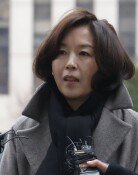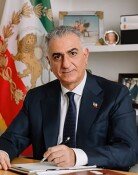Free medical shopping
A 40-something man lives alone in a rental apartment for low-income people in Busans Saha district. He starts his day by stopping by a hospital. Suffering from diabetes, hypertension, spinal stenosis, asthma and depression, he underwent medical treatment and received medicine at hospitals and clinics good for up to 16,066 days last year. The government subsidized a combined 69.76 million won (60,400 U.S. dollars) of his medical expenses. This means that every time he visited a hospital, he received medicine enough for up to 44 days. Did he really take all of those pills? The man is a beneficiary of the state medical aid program, in which the government covers all medical expenses.
Last year, 4.7 trillion won (4.1 billion dollars) of the national budget was paid to hospitals, clinics and drugstores as medical aid fees alone, up 6.3 percent from 4.4 trillion won (3.8 billion dollars) in 2008. Since poverty frequently involves disease, this trend could suggest that low-income people saw their health deteriorate to that extent, but medical shopping resulting from free medical coverage is also a major problem. Last year, the number of beneficiaries for this program who received basic medical coverage (prescription and treatment) on more than 2,000 days was 379. Only 81 or 21.4 percent of them were found to have used hospitals appropriately, while others abused or overused drugs (23.5 percent), habitually visited medical institutions (19.8 percent), and conducted medical shopping (14.5 percent). Some even were prescribed medicine for diet.
Medical assistance funds that the Seoul Metropolitan Government pays to people on basic welfare and the second-lowest income group were depleted in October. A combined 10.7 billion won (9 million dollars) in 6,500 cases have yet to be paid out. The central government pays 78 percent of medical assistance funds for low-income people and municipal governments 22 percent. Medical assistance funds have been depleted not just in Seoul but also in Busan, Daegu, Incheon, Gwangju and Daejeon and North Jeolla and South Gyeongsang provinces. As municipal governments cannot afford to provide medical assistance funds, the National Health Insurance Corp. cannot pay medical aid to hospitals, clinics and drugstores. If more people enjoy free medical shopping by visiting medical institutions, it will inevitably hurt the truly poor and sick.
The practice of misappropriating medical aid that should go to low-income people must be stopped. Hence, the government needs to thoroughly ensure that taxpayers money is not wasted by fraud. Before condemning their behavior, authorities need to take time to reflect on whether sloppy institutions have caused moral hazard. Because of lack of restrictions on free medical aid, medical shopping has grown rampant. Those who seek to introduce across-the-board free meals for all public school students should learn from the problems of the depleted budget for free medical services.
Editorial Writer Chung Sung-hee (shchung@donga.com)





![유학생들은 어쩌다 ‘먹튀’, 불법체류자가 되었나[이미지의 포에버 육아]](https://dimg.donga.com/c/138/175/90/1/wps/NEWS/IMAGE/2026/01/18/133179004.1.jpg)

